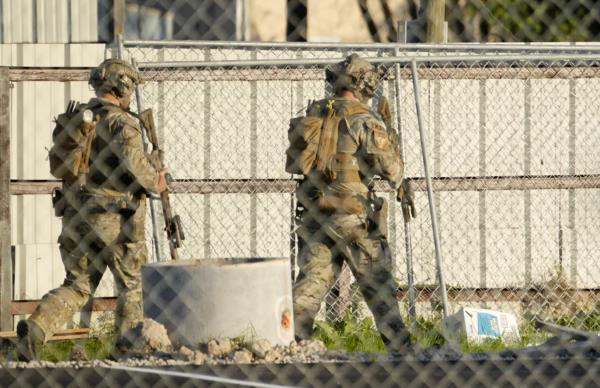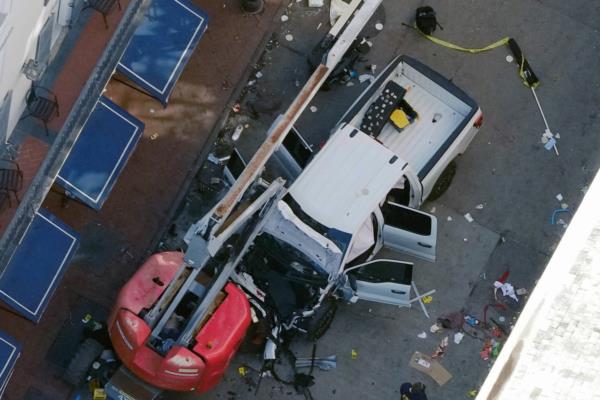
Following recent events in the Middle East and concerns raised by FBI Director Christopher Wray, the threat of terrorism on U.S. soil has become a pressing issue. The rise of homegrown extremists radicalizing independently and carrying out violent acts in the name of foreign groups has added a new dimension to the security landscape.
The recent New Year's attack in New Orleans, where an Army veteran drove a truck into crowds, highlights the challenges in combating lone actors who are not directly linked to international terrorist networks. Despite not being part of a broader plot, the attacker exhibited signs of significant planning, including suspected bomb-making materials found in his properties.
The attack, claimed to be inspired by the Islamic State group, underscores the unpredictable nature of terrorism threats and the difficulty in preventing violence from individuals with no direct overseas connections. The FBI and DHS have been vigilant, especially after a pro-IS media unit encouraged attacks at New Year's Eve celebrations.



As the leadership at the FBI undergoes a transition, with Kash Patel nominated for a key role, there are concerns about how the agency will address national security challenges. Patel's past skepticism of the FBI's national security practices raises questions about potential changes in strategy.
The situation in Syria, particularly with the ouster of President Bashar Assad and the rise of groups like Hayat Tahrir al-Sham, has added complexity to the security landscape. The fear of a power vacuum that could be exploited by IS, coupled with Turkish operations against Kurdish fighters, has raised concerns about a potential resurgence of the terrorist group.
Despite the turmoil in the Middle East, the unpredictability of attacks on U.S. soil remains a significant concern. The simplicity and accessibility of the means used in the New Orleans attack serve as a stark reminder of the challenges in preventing such incidents.







